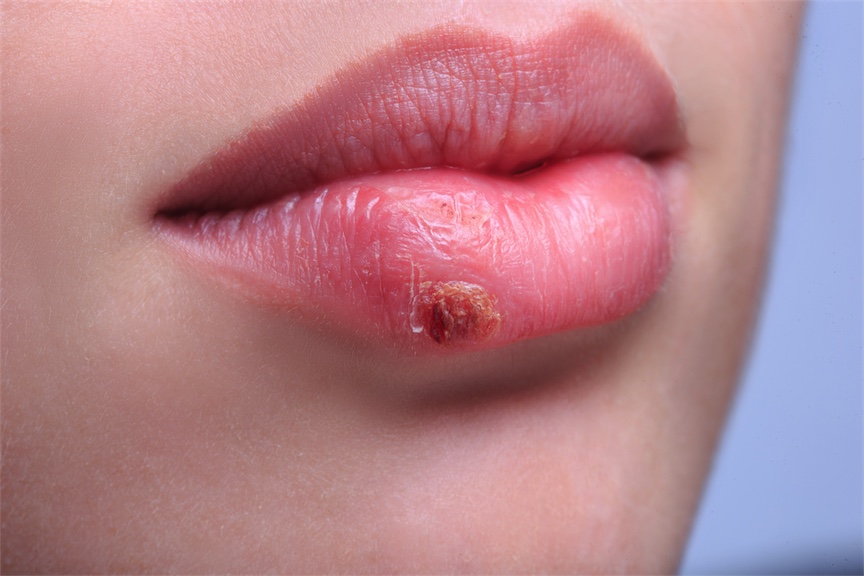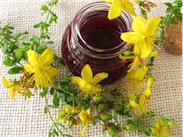Many of us are familiar with the tingling, itchy or burning sensation on our lips or mouth that heralds the arrival of a cold sore. Always at the least opportune time!
These sores are caused by the Herpes simplex 1 virus (HSV1) that up to 95% of us get in childhood. After the initial infection the virus hides out in the nervous system, and re-emerges when we get stressed or run down. Exposure to wind and sun as well as hormonal changes can also be a trigger for some people.
The course of a cold sore out break is usually between 7-14 days. This virus is very contagious before, during and after the infection so limit contact where saliva or mucus can come into contact with others.
Natural Treatments for Cold Sores
Herbal Remedies
At the time of an outbreak topical treatments of essential oils of lavender and geranium can be beneficial. Lavender can generally be applied neat but geranium should be diluted with 5 drops of essential oil to 1 teaspoon of a carrier oil.
St John’s wort as an infused oil can also be be effective in managing the nerve pain.
A good quality infused oil will be a deep ruby, red colour.
Liquid herbs that are useful topically for cold sores are lemon balm (Melissa officinalis) and licorice (Glycyrrhiza glabra). The licorice needs to contain glycyrrhizin NOT glycyrrhetininic acid to be effective as this is the anti-viral component.
Apply these with a fresh cotton bud 4 times per day.
Herbs such as Echinacea, Astragalus and St John’s wort can be taken internally to boost immunity. Be sure to check with your naturopath or herbalist for the right combination and dose for you.
Nutrition & Diet for Cold Sores
If you’re prone to cold sores you may want to consider tweaking your diet to reduce the amount of arginine containing foods (chocolate, nuts, gelatine, carob, wheat, coconut, oats, soy, peanuts and turkey) and increase the amount of lysine foods (fish, chicken, beef, lamb, brewers yeast, mung bean sprouts and most vegetables). Arginine and lysine are amino acids that compete with each other for absorption. Arginine is believed to increase the growth of viruses so having less arginine available may make it harder for viruses to take hold. Lysine can also be taken as a supplement.
Vitamin C and zinc are essential nutrients to assist in helping the immune system fight the virus in addition to ensuring the lesions heal faster.
Prevention
Keeping your immune system in tip top shape is a sure fire way to reduce the frequency of cold sore attack or even prevent them all together. No surprises here then that the foundations of that are a healthy, whole-foods diet, regular movement, refreshing sleep and effective stress reduction or management techniques!

Need help with your immune system?
Norelle Hentschel is an experienced Naturopath with a clinic in Stones Corner, Brisbane who enjoys supporting her clients to reach their health goals.
Want more articles like this?
Receive a monthly digest of natural health information to help you become “health” sufficient!
PS. Your inbox real estate is precious, and we will never annoy you with sales pitches or share your details with anyone else. One email a month — that’s it.


